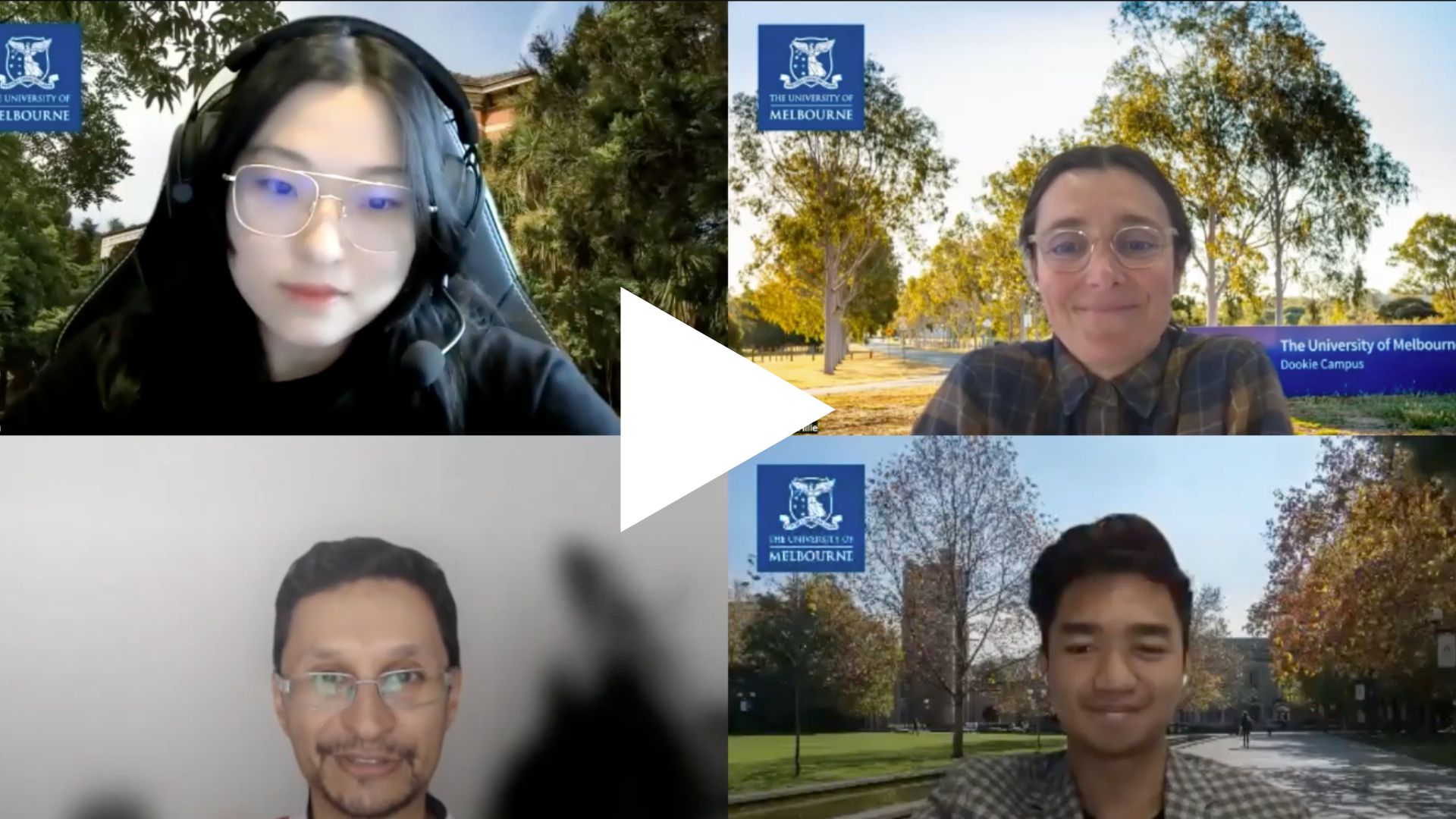
WEHI Research Computing Platform
Public page for the WEHI Research Computing Platform (RCP)
RCP Discovery Internship Program
The WEHI Research Computing Platform regularly provides unpaid internship opportunities via the Discovery Internship Program. Interns can get course credit through the University of Melbourne Data Science and Software Engineering programs, and Open Source Contributors (volunteers) can also participate from around the world.
Out of the 16 anonymous reviews that have been given by students as at 4th of June 2025, our internships have been rated a 4.6 out of 5.
These internships are 100% remote, and we have already hosted interns from Africa, Asia, Australia, Europe, and both North and South America — every continent except Antarctica!
We assist students and early career professionals in transitioning to the real workforce by engaging them in multi-disciplinary teams on complex projects. Over the past four years, we have successfully assembled more than 81 multi-disciplinary teams, featuring over 270 interns.
We have won a WEHI award - the Kellaway Excellence Education Award in 2024 - for being innovative and putting interns first. This is why we have:
- daily standups twice a day except for Friday (only once on Fridays),
- individual learning plans to help you plan your learning needs to fit your goals,
- technical diaries to share your technical work with your team mates, and
- the ability to test and improve your continuous improvement skills
We have three intakes per year - Semester 1 (March to May), Semester 2 (August to October), and Summer (November to February the next year). The intake dates currently available and hours per week are here. We have anywhere between 20 and 45 interns in an intake.
List of student intern projects (subject to availability and eligibility)
Please note that applications for the Summer 2025 / 2026 intake have now closed.
Here are some of the recurring student intern projects and new projects we are working on.
Sign up for Semester 1 2026 updates
We have had 251 interns through the program since Semester 2, 2021 who have provided over 24 person years of effort to help us uncover and document complexity early in over 80 intern projects.
Out of the 16 anonymous reviews that have been given by students as at 4th of June 2025, our internships have been rated a 4.6 out of 5.
Expectations during the internship
Before you apply - please ensure you can take the time to spend doing at least 6 to 8 hours per week on these internships:
- 1 hour a week for a project meeting with your supervisor and your teammates,
- 1 hour a week for a co-working session with your teammates,
- 1 hour a week keeping track of emails and organising yourself, and
- the rest working on projects in your own time and asking 10+ questions a week at standups that run twice a day but are not mandatory
Also please ensure you:
- ask 10+ questions a week about your project (this link shows you how many questions were asked in Intake 13 - Semester 2),
- email a group weekly report before your meeting each week,
- 4 touch points per week with your supervisor (project meeting, weekly group email summary, and two other interactions)
- keep an Individual Learning Plan (ILP) and a technical diary,
- keep on top of the emails sent about your internship (there are a lot!),
- keep an up to date calendar so you can plan your week, and
- let your supervisor by email if you are unable to work on the internship.
Learn real world skills
We prepare students for the real-world by teaching them:
- communication is 90% of the work - even in tech,
- organisation skills are extremely important,
- asking questions is a key factor in how fast you learn,
- how understanding the domain problem and the users is more important than technical skills, and how to work on a complex, ambiguous project,
- showing them how to become as independent as possible,
- show them how to document and share knowledge to others in a professional manner,
- explain how a software maturity model can help clarify expectations, and
- teaching them how to work productively in a remote environment.
We even tell students how to try to avoid the top 5 mistakes that students make.
In our Welcome Session, we talk about ways you can better learn real world skills.
Types of projects
Many of the projects work in the Data Analysis and Research Software Engineering space using High Performance Compute (HPC). We work across diverse projects such as imaging, cryo-EM, genomics, transcriptomics, clinical informatics, and capacity planning.
We mainly work with projects that use R and Shiny, Python, Julia, bash, while also making the most out of other technologies such as RStudio, Jupyter notebooks, PowerBI and other applications within the data analytics space.
List of previous student intern project reports
Here are some of the previous student intern reports.
Open source contributors
Sometimes, we are in contact with students who cannot get course credit and are extremely keen to volunteer as an open source software contributor. In these situations, we have to be careful we do not act in an exploitative way. This is why we have written our expectations of potential open source contributors to make the expectations more transparent.
Hear from previous students
You can listen to two students talk about their projects (click image below).
How to Apply
- Read the RCP Student Internship Program Handbook,
- Read the intake dates here
- Read the RCP Code of Conduct,
- Read the Social Media Policy for student interns,
- Further details on how to apply are here.
Other Information
Here is more information about the internship program:
- the key milestones and emails for the projects
- the Annual Report RCP Discovery Internship Program 2025
- the online FAQ
